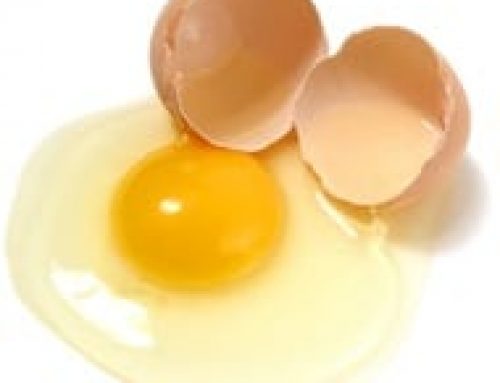
History of eggs – A basket of eggs
When did people start to eat eggs?
People have been eating eggs since there first started to be people, about six million years ago. Eggs have a lot of protein in them, and they don’t fight back – you can get them just by climbing to where the nest is and picking them up.
Why is protein important?
Early primates and people
The evolution of eggs
When did people start to keep chickens?
By about 7000 BC, people in China and India were keeping chickens and eating their eggs, so they didn’t have to go hunting for wild bird eggs anymore.
History of chickens
Early Chinese food
Early Indian food
Chicken eggs didn’t reach West Asia, Egypt, or Europe until about 800 BC, or even later, and people in southern Africa didn’t start to eat chicken eggs until about 500 AD. Before that, Europeans and West Asians kept ducks and geese for their eggs.

Ostrich egg from Sudan, ca. 4400 BC
Early incubators for eggs
About 300 BC, chicken farmers in both Egypt and China worked out ways to incubate chicken eggs in warm clay ovens, so that they didn’t need to have hens sit on their eggs to hatch them, and instead the hens could lay more eggs. (Did they get the idea from their beehives and honey farms?) This factory system made chicken eggs cheaper, and more people began to eat them.
History of beehives and honey
Eggs and springtime

Painting eggs for Qingming
All through antiquity and the Middle Ages, right up until modern times, chickens only laid eggs for part of the year – mainly in the spring, when there was plenty of daylight but it wasn’t too hot out. That’s why we have Easter eggs and the egg on the Seder plate – to celebrate the return of eggs in the spring. A lot of traditional egg recipes call for other foods that are in season in the spring, like chives or asparagus.
More about Easter eggs
What is Passover?
Iranian Nowruz holiday
China’s Qingming festival
(Today chickens lay eggs all year round because farmers keep them inside in big barns with electric lights and air-conditioning so they can control the temperature and the amount of light.)

History of eggs – Thousand year old eggs
How did people cook their eggs?
At first people ate their eggs raw, but once people began to use fire, about a million years ago, they often roasted eggs in the coals. With the invention of pottery, about 5000 BC, boiling eggs gradually became more common.
In ancient Rome, hard-boiled eggs were so common as an appetizer that people said “ab ova ad mala”, from eggs to apples, meaning from the beginning of the meal to the end, or from start to finish. People also began to use eggs in breads, cakes, and custards.
Food in ancient Rome
History of apples
Thousand-year-old eggs
Eggs would keep for only about a month before you had to eat them. To make them keep longer, people would often pickle eggs in salt water and vinegar. In China, people fermented eggs to make them keep longer. They called this “thousand-year-old eggs” but they are really only a few weeks or a month old.
History of salt
Wine and wine-making
(You don’t have to refrigerate eggs unless you wash them; in the United States our eggs are washed, so they do have to be refrigerated.)
Learn by Doing – Projects with Eggs
More about chickens
Bibliography and further reading about chickens:
Chicks & Chickens, by Gail Gibbons (2003). Explains where chickens come from, and what they eat, and so on. For younger kids.
A Chicken in Every Pot: Global Recipes for the World’s Most Popular Bird, by Kate Heyhoe (2003). Includes a brief history, and lots of recipes for chicken.
Much Depends on Dinner: The Extraordinary History and Mythology, Allure and Obsessions, Perils and Taboos, of an Ordinary Meal, by Margaret Visser (1999). Background on what you eat, including a chapter on chicken.
Food in Antiquity: A Survey of the Diet of Early Peoples, by Don and Patricia Brothwell (1998). Pretty specialized, but the book tells you where foods came from, and how they got to other places, and what people ate in antiquity. Not just Europe, either!

[…] some accounts, it all began with egg roasting about a million years ago. This likely evolved into egg boiling around 5000 B.C., thanks to the invention of pottery. And […]
[…] some accounts, it all began with egg roasting about a million years ago. This likely evolved into egg boiling around 5000 B.C., thanks to the invention of pottery. And […]
I was just eating boiled eggs in the morning when the question suddenly popped up the information was really helpful
THank you! I’m glad we could help!
I am very fasinated with the history of all things this info on eggs was truly enlighting.
Thanks, Clarence David! I’m glad we could help. We have lots more articles, if you want to keep exploring.
[…] some accounts, it all began with egg roasting about a million years ago. This likely evolved into egg boiling around 5000 B.C., thanks to the invention of pottery. And […]
[…] have eaten chicken eggs for centuries, however, in recent years, there has been a growing consciousness surrounding the […]
This was very interesting to learn thank you
I’m glad we could help, Sharon! Thanks for stopping by.